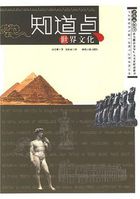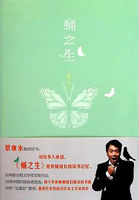'A form of godliness.'--Paul.
We all began our religious life by being formalists. And we were not altogether to blame for that. Our parents were first to blame for that, and then our teachers, and then our ministers. They made us say our psalm and our catechism to them, and if we only said our sacred lesson without stumbling, we were straightway rewarded with their highest praise. They seldom took the trouble to make us understand the things we said to them. They were more than content with our correct repetition of the words. We were never taught either to read or repeat with our eyes on the object. And we had come to our manhood before we knew how to seek for the visual image that lies at the root of all our words. And thus the ill-taught schoolboy became in us the father of the confirmed formalist. The mischief of this neglect still spreads through the whole of our life, but it is absolutely disastrous in our religious life. Look at the religious formalist at family worship with his household gathered round him all in his own image. He would not on any account let his family break up any night without the habitual duty. He has a severe method in his religious duties that nothing is ever allowed to disarrange or in any way to interfere with. As the hour strikes, the big Bible is brought out. He opens where he left off last night, he reads the regulation chapter, he leads the singing in the regulation psalm, and then, as from a book, he repeats his regulation prayer. But he never says a word to show that he either sees or feels what he reads, and his household break up without an idea in their heads or an affection in their hearts.
He comes to church and goes through public worship in the same wooden way, and he sits through the Lord's Table in the same formal and ceremonious manner. He has eyes of glass and hands of wood, and a heart without either blood or motion in it. His mind and his heart were destroyed in his youth, and all his religion is a religion of rites and ceremonies without sense or substance.
'Because I knew no better,' says Bunyan, 'I fell in very eagerly with the religion of the times: to wit, to go to church twice a day, and that, too, with the foremost. And there should I sing and say as others did. Withal, I was so overrun with the spirit of superstition that I adored, and that with great devotion, even all things, both the high place, priest, clerk, vestment, service, and what else belonged to the church: counting all things holy that were therein contained. But all this time I was not sensible of the danger and evil of sin. I was kept from considering that sin would damn me, what religion soever I followed, unless I was found in Christ. Nay, I never thought of Christ, nor whether there was one or no.'
A formalist is not yet a hypocrite exactly, but he is ready now and well on the way at any moment to become a hypocrite. As soon now as some temptation shall come to him to make appear another and a better man than he really is: when in some way it becomes his advantage to seem to other people to be a spiritual man: when he thinks he sees his way to some profit or praise by saying things and doing things that are not true and natural to him,--then he will pass on from being a bare and simple formalist, and will henceforth become a hypocrite. He has never had any real possession or experience of spiritual things amid all his formal observances of religious duties, and he has little or no difficulty, therefore, in adding another formality or two to his former life of unreality. And thus the transition is easily made from a comparatively innocent and unconscious formalist to a conscious and studied hypocrite. 'An hypocrite,' says Samuel Rutherford, 'is he who on the stage represents a king when he is none, a beggar, an old man, a husband, when he is really no such thing. To the Hebrews, they were faciales, face-men; colorati, dyed men, red men, birds of many colours. You may paint a man, you may paint a rose, you may paint a fire burning, but you cannot paint a soul, or the smell of a rose, or the heat of a fire. And it is hard to counterfeit spiritual graces, such as love to Christ, sincere intending of the glory of God, and such like spiritual things.' Yes, indeed; it is hard to put on and to go through with a truly spiritual grace even to the best and most spiritually-
minded of men; and as for the true hypocrite, he never honestly attempts it. If he ever did honestly and resolutely attempt it, he would at once in that pass out of the ranks of the hypocrites altogether and pass over into a very different category. Bunyan lets us see how a formalist and a hypocrite and a Christian all respectively do when they come to a real difficulty. The three pilgrims were all walking in the same path, and with their faces for the time in the same direction. They had not held much conference together since their first conversation, and as time goes on, Christian has no more talk but with himself, and that sometimes sighingly, and sometimes more comfortably. When, all at once, the three men come on the hill Difficulty. A severe act of self-denial has to be done at this point of their pilgrimage. A
proud heart has to be humbled to the dust. A second, a third, a tenth place has to be taken in the praise of men. An outbreak of anger and wrath has to be kept under for hours and days. A great injury, a scandalous case of ingratitude, has to be forgiven and forgotten; in short, as Rutherford says, an impossible-to-be-
counterfeited spiritual grace has to be put into its severest and sorest exercise; and the result was--what we know. Our pilgrim went and drank of the spring that always runs at the bottom of the hill Difficulty, and thus refreshed himself against that hill;
while Formalist took the one low road, and Hypocrisy the other, which led him into a wide field full of dark mountains, where he stumbled and fell and rose no more. When, after his visit to the spring, Christian began to go up the hill, saying:
'This hill, though high, I covet to ascend;
The difficulty will not me offend;















